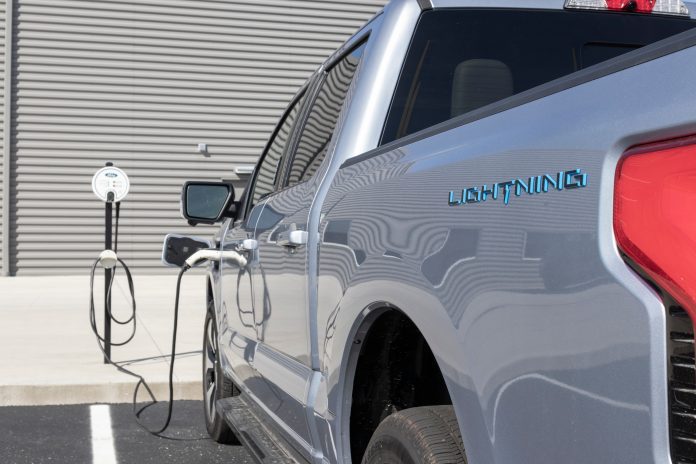Ford has revealed multiple agreements with lithium suppliers which it says will allow for a massive increase in electric vehicle production.
Five partners were named in the announcement, each of whom agreed to massive amounts of lithium hydroxide and lithium carbonate over the next decade, two minerals essential to the production of EV batteries. Three companies, Albermarle, EnergySource Materials and Compass Minerals, are headquartered in the U.S., while the remaining two, Nemaska Lithium and SQM, operate in Canada and Chile. The automaker said these new deals will allow it to manufacture 2 million EVs annually starting in 2026.
Automakers have frequently struggled to secure lithium, and other materials required for EV battery production due to the domestic sourcing requirements found in the Inflation Reduction Act. Although the law allows electric car buyers to earn up to $7,500 in tax credits, the incentive can be lowered if the vehicle is built from components or materials obtained from outside the U.S. While the move was intended to lessen American auto manufacturers’ dependence on China, car brands at home and overseas have criticized the bill for upsetting the balance of international trade.
Earlier this year, the Biden Administration indicated it would allow parts made in countries designated as free trade partners to qualify as domestic, even if they were built overseas. Both Chile and Canada have free trade agreements with the U.S. allowing Ford to avoid the penalties it would otherwise accrue by working with foreign lithium suppliers.




